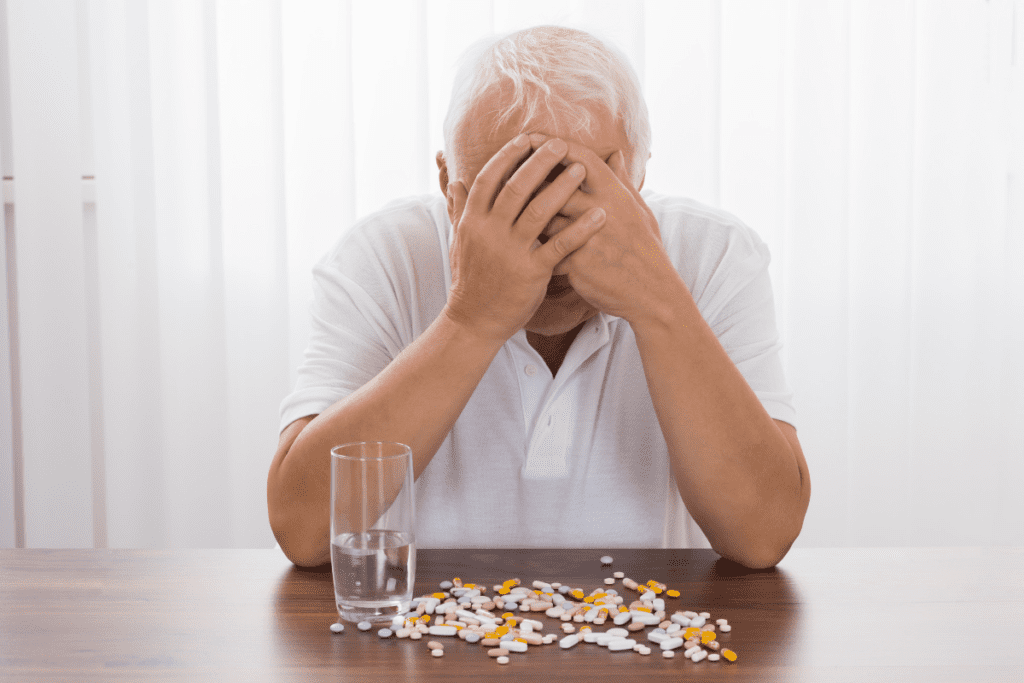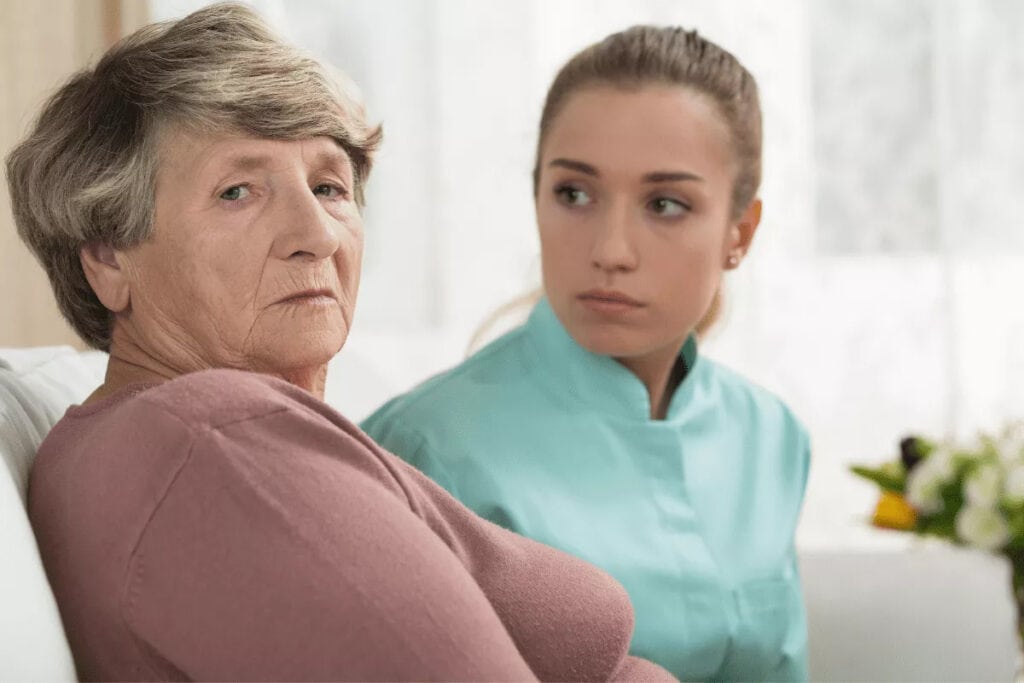The American Psychiatric Association, defines depression (or major depressive disorder) as a common and serious, but treatable, medical illness that has a negative effect on how a person feels and their behavior. Depression might be characterized differently depending on the individual. Some people might grapple with guilt, some may feel worthless, or generally sad. There may also be thoughts of self-harm or suicide, some have trouble sleeping, experience dramatic changes in weight, or general restlessness. The signs might be some or a combination of the above, and there may be other signs.
Whatever the signs, they must be experienced for a sustained period. This is typically 14 days. The signs must also contrast with the individual’s usual state before the condition can be diagnosed as depression. Possible medical problems that might manifest similar symptoms to those of depression should also be considered before making the diagnosis.
What Might Trigger Depression in the Elderly?
Depression can affect anyone irrespective of their demographic characteristics – including those who seemingly live perfectly normal lives. There are several things that raise the likelihood of depression, regardless of a person’s age.
For instance, genetics has been shown to be a contributing factor. Although there is no clear hereditary pattern, a person who has an immediate relative suffering from depression runs several times the risk of developing it, compared to other people.
Several other general factors might also heighten the probability of a person developing the condition, for the young and elderly alike. For example, chemical or hormonal imbalances in the brain, some character traits like pessimism, or environmental factors such as financial hardship, abuse, or some other social vulnerability that might cause low self-esteem or trigger any of these factors.
While all of these apply for seniors as well, there are a few factors that put the elderly in particular at greater risk. Seniors that are female are at a greater risk. Those that are single, or have lost a partner, whether through divorce or death, are more likely to develop depression as well as those that have endured stressful life events.
All of these factors are compounded further when the individual does not have a support network to help them with coping.
What Causes Depression in Seniors?
For seniors especially, many of the causes of depression directly relate to the health issues that usually develop at this stage in life as a part of aging . Depression may develop from the toll, emotional and/or physical, that multiple health issues might bring about. Many of the elderly are dealing with chronic pain, the side-effects of certain drugs, the loss of physical mobility or independence after surgery, for example, or just the stress of being moved from one’s home into a hospital.
As people grow older, they are also forced to deal with loss more often. They lose the ability to work and the financial and psychological benefits that come with gainful employment. They also typically have to deal with feelings of loneliness and neglect. Loved ones pass on, or simply move away and lose contact. And as they advance in years, they also have to face the prospect of their own passing.

How to Cope With Depression?
Depression is often manifested in a lack of desire to do anything or to interact with anyone. However, this isolation and lack of social contact only aggravate the condition. People in isolation tend to lose perspective and the will to help themselves. It is therefore extremely important to find a support group of loved ones who can help you cope.
Connecting with new people and building relationships helps. One of the best ways to do this is to find a community of other people who are dealing with similar issues. This will alleviate that feeling of isolation and will help others suffering with depression to ease that feeling of loneliness and show them that they are not alone either.
It is also possible to find a community of people who might have similar interests or hobbies, like art classes or book clubs. Learning a new skill is also an effective way to stay occupied. Owning a pet might also be a good source of companionship.
Even when breaking this isolation by actively seeking out new relationships is not possible, it still helps to engage in some activities outside the house. This might simply mean taking walks in a park, going to events like plays, or volunteering to help others.
Still, whenever there is a case of depression, the number one priority must be to seek professional help.
Psychotherapy
Professional counseling and therapy are absolutely crucial because trained professionals are able to diagnose and address the causes of depression, not its symptoms. This helps the individual deal with the stress of loss, bereavement, difficult life changes, and helps them cope with their emotions. It also provides them with the framework to identify negative thoughts, and a strategy to cope with them.
Medication
Depending on the causes of the condition, doctors may prescribe drugs that address hormonal imbalances that might be the root of, or a contributing factor to, the depression. Doctors prescribe medication for depression, and also to ease anxiety. Some commonly prescribed drugs are antidepressant medications. It is not unusual to find Selective Serotonin Reuptake Inhibitors (SSRIs), Selective Serotonin & Norepinephrine Inhibitors (SNRIs), or and other such drugs prescribed.
Electroconvulsive Therapy
When a case is severe, Electroconvulsive Therapy (ECT) might be used. During ECT, electricity is used to stimulate the brain while a person is anaesthetized. Doctors often turn to ECT when other treatments fail to produce significant results. ECT does not come without its risks. People who undergo this procedure might experience short-term memory loss and may have problems learning.
How to Prevent Depression
The factors that contribute to depression can be mitigated by generally adopting a healthy way of living. A healthy exercise routine helps. In fact, by some estimates, this might have as strong an effect as taking medication.
Eliminating bad dietary habits also contributes to reducing the risk factors of depression. Not skipping meals, cutting down on sugar and carbohydrates, and eating healthier all add up to a well-nourished body.
In addition, regularly sleeping well in a suitable environment has great benefits for the effective treatment and prevention of depression. Monitoring alcohol and caffeine intake is critical for getting good sleep, maintaining a healthy body and achieving a better quality of life.


